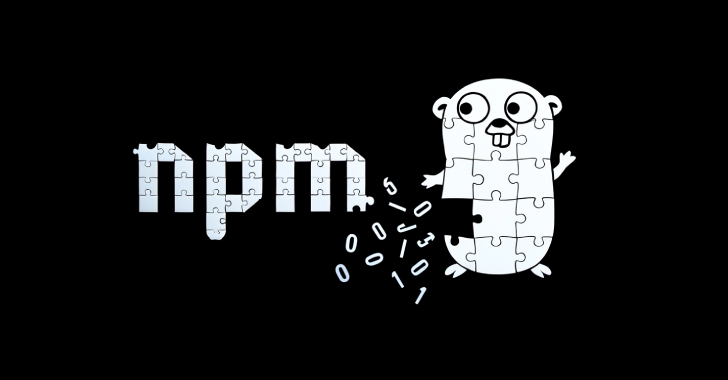
What to Look for in a Good Cloud Technology Analyst
In today’s digital age, cloud technology has become an essential component of businesses of all sizes and industries. With the vast amount of data being generated and the need for scalable and flexible IT infrastructure, organizations are increasingly adopting cloud solutions to meet their computing needs. However, navigating the complex world of cloud technology can be challenging without the right expertise. That’s where a good Cloud Technology Analyst comes into play.
A qualified cloud technology analyst can provide valuable insights and recommendations to help organizations leverage the power of the cloud. But what should you look for when hiring a cloud technology analyst? Here are some key qualities and skills that you should consider:
- Knowledge and Expertise:
One of the first things to look for in a good cloud technology analyst is their knowledge and expertise in cloud computing. They should have a deep understanding of different cloud platforms and technologies, including Infrastructure as a Service (IaaS), Platform as a Service (PaaS), and Software as a Service (SaaS). They should also be familiar with popular cloud service providers like Amazon Web Services (AWS), Microsoft Azure, and Google Cloud Platform.
Moreover, a good analyst should have a strong grasp of cloud architecture, deployment models, security practices, scalability mechanisms, and cost optimization techniques. This knowledge will allow them to assess your organization’s needs, identify the right cloud solutions, and develop effective migration strategies.
- Industry Experience:
While a general understanding of cloud technology is important, industry-specific experience is equally crucial. Look for an analyst who has worked in your industry or a similar sector. This ensures that they are familiar with the unique challenges and opportunities specific to your industry.
For example, if you’re in the healthcare sector, finding an analyst who has experience with HIPAA compliance and secure data storage in the cloud would be highly beneficial. Similarly, if you’re in the retail industry, an analyst with knowledge of e-commerce platforms and customer data management in the cloud would be ideal. Industry experience allows the analyst to provide tailored recommendations and solutions that align with your organization’s specific requirements.
- Analytical Skills:
In the world of cloud technology, data is king. A good cloud technology analyst should have excellent analytical skills to crunch large volumes of data and derive meaningful insights. They should be able to analyze cloud metrics, performance logs, and cost data to identify patterns, trends, and areas for improvement.
These analytical skills are especially important when it comes to optimizing cloud costs. Cloud services can quickly become expensive, and an analyst with strong analytical skills can help identify cost-saving measures, such as rightsizing instances, implementing reserved instances, or optimizing storage usage.
- Communication Skills:
Cloud technology can be complex, and it’s essential to find a cloud technology analyst who can effectively communicate technical concepts and findings to stakeholders at all levels of the organization. They should be able to explain the benefits and risks of cloud solutions in plain language so that non-technical decision-makers can make informed choices.
In addition to verbal communication skills, good written communication is also critical. Look for an analyst who can produce clear and concise reports, documentation, and presentations that outline technical details, recommendations, and project plans. These communication skills ensure that everyone in the organization understands the benefits, risks, and steps involved in cloud technology adoption.
- Continuous Learning:
Cloud technology is continuously evolving, with new services, features, and security practices being introduced regularly. To stay ahead of the curve, a good cloud technology analyst should be committed to continuous learning. They should actively seek out new knowledge, participate in training programs, and stay informed about the latest trends and developments in the field.
A cloud technology analyst who is a lifelong learner will bring fresh ideas and perspectives to the table, ensuring that your organization benefits from the latest advancements in cloud technology.
- Collaboration Skills:
Implementing cloud technology often involves close collaboration with various teams, including IT, security, and operations. A good cloud technology analyst should have strong collaboration skills and the ability to work effectively with multiple stakeholders.
For example, when migrating infrastructure to the cloud, the analyst needs to collaborate with the IT team to ensure a smooth transition and address any technical challenges. Likewise, when evaluating cloud security solutions, collaboration with the security team is necessary to ensure compliance and protect sensitive data.
- Problem-Solving Skills:
Cloud technology can present complex challenges, such as data migration, application integration, security considerations, and performance optimization. A good cloud technology analyst must possess strong problem-solving skills to address these challenges effectively.
A skilled analyst should be able to identify potential roadblocks and propose innovative solutions. They should have the ability to think critically and find creative approaches to overcome hurdles and deliver successful cloud implementations.
- Attention to Detail:
Cloud technology implementations require meticulous attention to detail to ensure accuracy and prevent any potential issues. Look for an analyst who is detail-oriented and can perform thorough analysis and testing to ensure the quality of the cloud implementation.
Whether it’s reviewing cloud configurations, validating data backups, or conducting security audits, a good cloud technology analyst should exhibit a keen eye for detail. This attention to detail ensures that the cloud environment is set up correctly, minimizing the risk of performance bottlenecks, data loss, or security breaches.
- Vendor Neutral:
When seeking a cloud technology analyst, it’s important to find someone who is independent and vendor-neutral. While different cloud service providers offer their unique sets of features and benefits, it’s crucial to find an analyst who can provide unbiased recommendations based solely on your organization’s needs and requirements.
A vendor-neutral analyst can help you avoid being locked into a specific cloud provider or technology. They will assess your business needs objectively and recommend the solution that offers the best fit, scalability, and cost-effectiveness for your organization.
In conclusion, finding a good cloud technology analyst requires looking for a combination of skills, knowledge, and experience. A skilled analyst should have a strong technical background, deep industry knowledge, excellent analytical and problem-solving skills, effective communication and collaboration abilities, a commitment to continuous learning, meticulous attention to detail, and a vendor-neutral approach. By finding an analyst with these qualities, you can ensure that your organization successfully leverages the power of cloud technology to meet its digital transformation goals.
Contact Cyber Defense Advisors to learn more about our Cloud Technology Analyst solutions.





